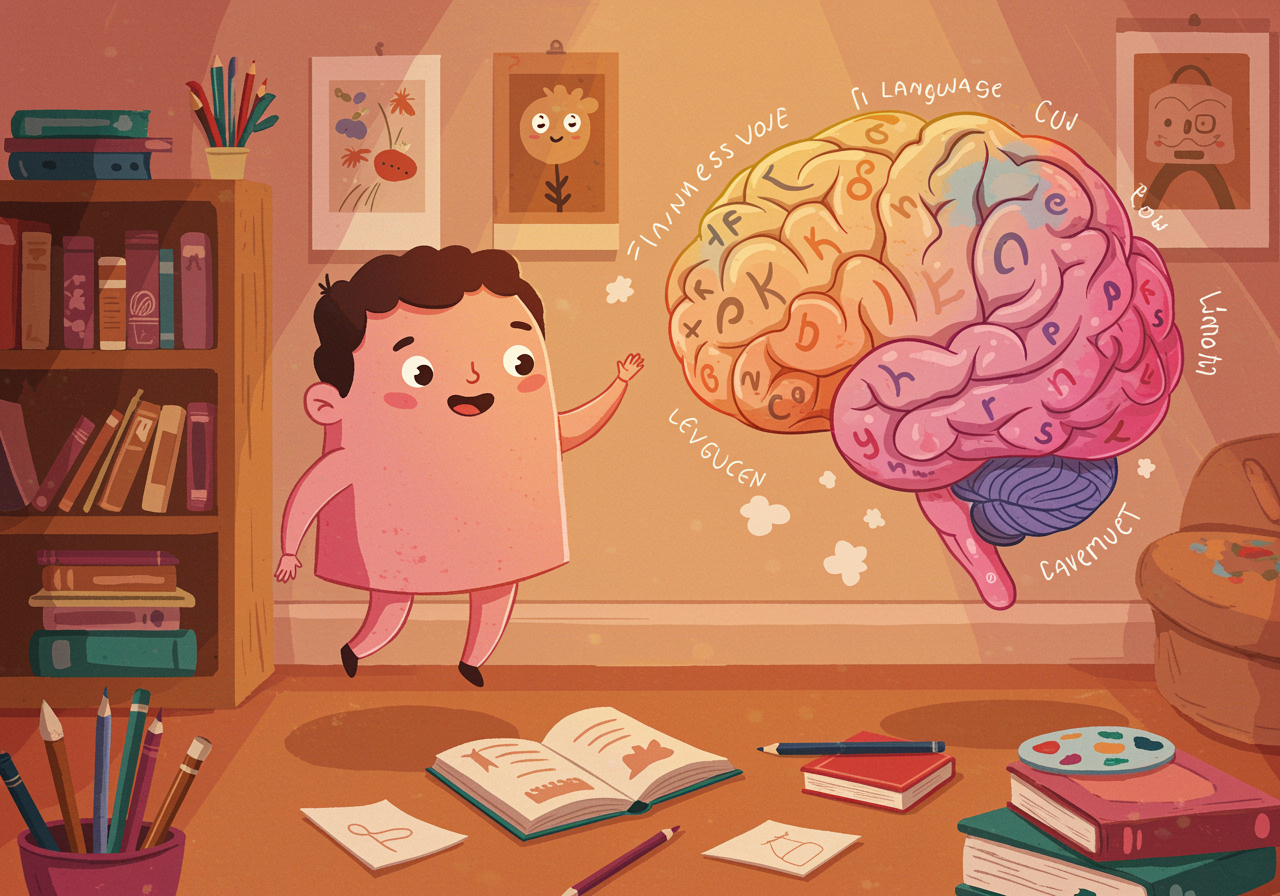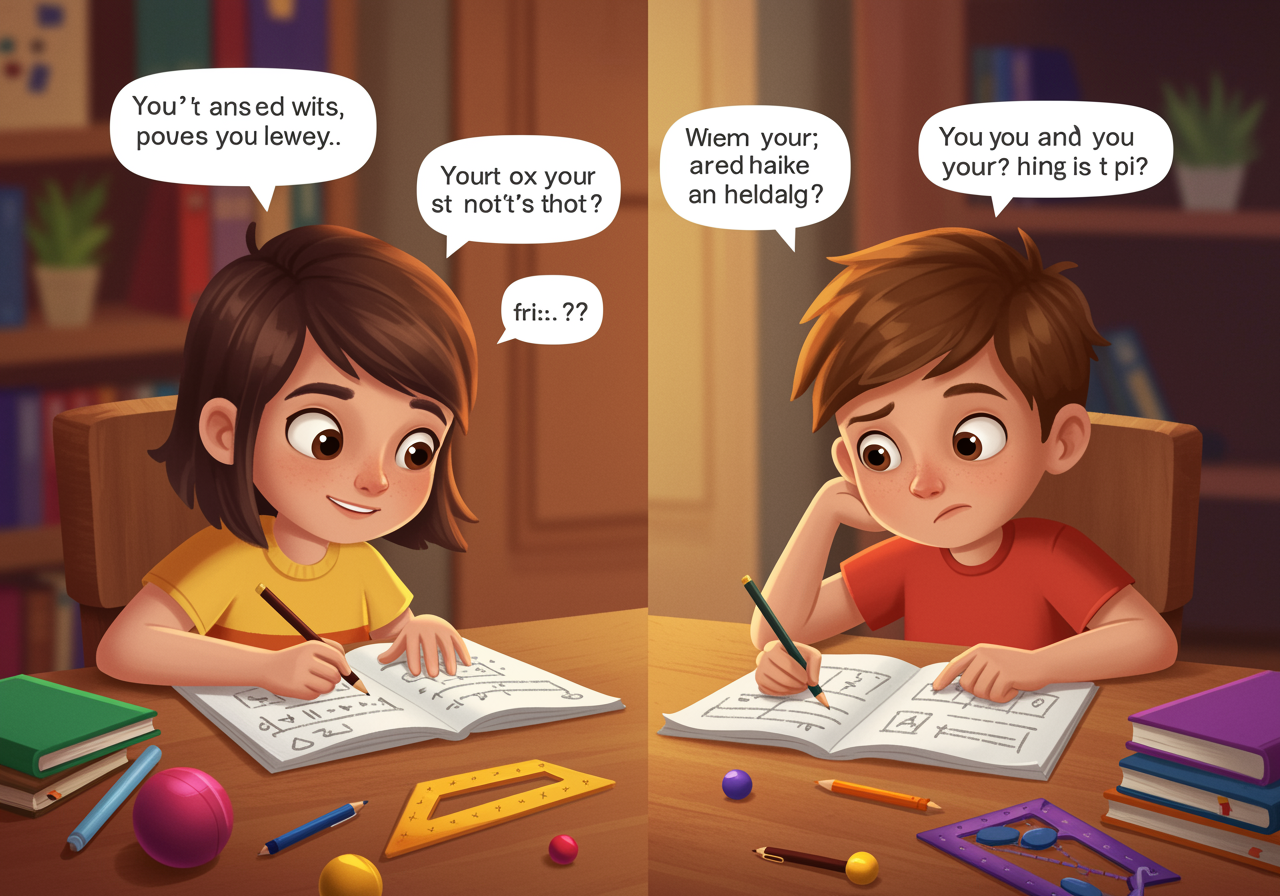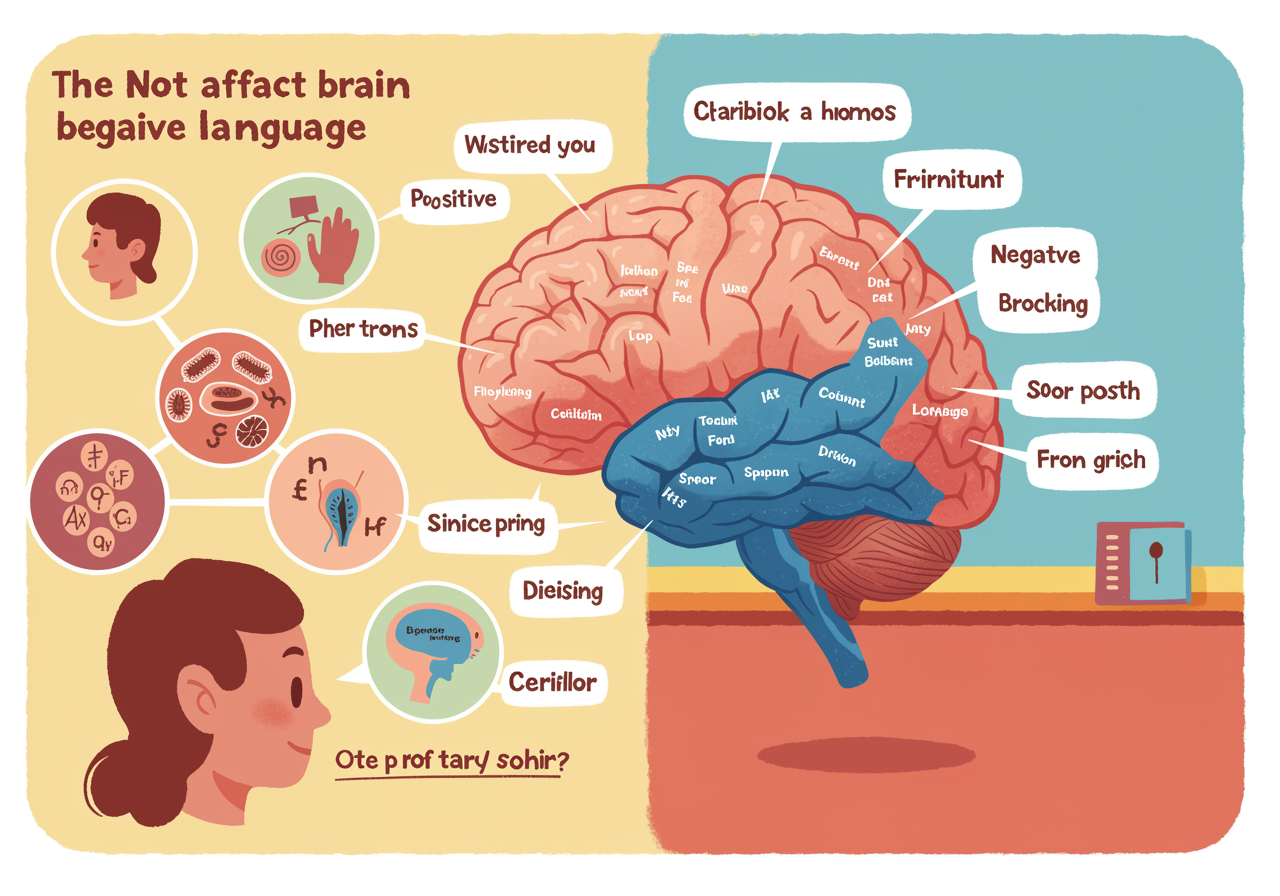The Voice Inside: How Childhood Words Build Our Inner GPS
Discover how the words we hear as kids become the voice guiding us through life
Ever wonder why some people seem naturally confident while others doubt themselves? The secret might be hiding in the words they heard growing up.
Overview
Think about the voice in your head right now – the one reading these words and thinking your thoughts. That voice didn't just appear out of nowhere! It's been shaped by every word you've heard since you were tiny, like a sculptor molding clay. Scientists have discovered that our brains are like super-absorbent sponges during childhood, soaking up not just the words people say to us, but also how they say them. These words literally help build the pathways in our brains that determine how we talk to ourselves as adults. Understanding this amazing process can help families choose words that build confidence, resilience, and kindness – both in how we speak to others and how we think about ourselves.

Understand in 30 Seconds
Get up to speed quickly
- Your Brain is a Word-Collecting Machine: From birth to about age 25, your brain is constantly rewiring itself based on your experiences. The words you hear most often create the strongest pathways, becoming your default inner voice.
- Words Become Your Internal GPS: Just like a GPS guides you through traffic, your inner voice guides you through life's challenges. If you heard 'You're so smart!' as a kid, you might think 'I can figure this out' when facing problems.
- Negative Words Stick Like Velcro: Our brains are wired to remember negative experiences more strongly than positive ones. This means harsh words can have a bigger impact than we realize.
- But Here's the Amazing Part: Your brain never stops changing! Even as adults, we can rewire our thinking patterns by consciously choosing different words and thoughts. It's like updating your mental software.
Real Life Scenario
Situations you can relate to
Imagine two kids, Sam and Alex, both struggling with math homework. Sam's parents always said, 'Math is hard, but you're getting better every day!' When Sam hits a tough problem, their inner voice says, 'This is tricky, but I can work through it step by step.' Alex's parents often said, 'You're just not a math person.' When Alex faces the same problem, their inner voice whispers, 'I'm terrible at this. I should just give up.' Same problem, same intelligence level, but completely different internal conversations! The fascinating part? Scientists can actually see these different thinking patterns in brain scans. Kids who heard growth-focused language show more activity in problem-solving areas, while those who heard fixed labels show more stress responses. What's even cooler is that Alex isn't stuck with this pattern forever – brains can be retrained with new, kinder words and thoughts.

Role Play
Spark a conversation with “what if” scenarios
What if you could hear your future self's inner voice?
- Role play: Take turns being 'Future You' at age 25. Share what your inner voice might sound like based on words you hear now. Practice switching between harsh inner voices ('I always mess up') and kind ones ('I'm learning and growing').
What if words had visible superpowers?
- Role play: Pretend different types of words are superhero powers. 'Growth words' like 'yet' and 'learning' are shields that protect against giving up. 'Fixed words' like 'always' and 'never' are weights that slow you down. Act out scenes using these word superpowers.
What if you were a brain architect?
- Role play: Use building blocks or draw blueprints to design a brain. Discuss which words would build strong, flexible pathways versus brittle, narrow ones. Build different sections for confidence, creativity, and problem-solving.
FAQs
Frequently asked questions people want to know
Can negative words from childhood really affect adults?
Yes! Research shows that children who frequently hear criticism or harsh labels develop more self-critical thinking patterns that can last into adulthood. However, these patterns can be changed with awareness and practice.
What if I already have a negative inner voice?
Great news – your brain is always capable of change! Start by noticing your inner voice, then practice replacing harsh thoughts with kinder, more realistic ones. It takes time, but it works.
Is it bad to ever use words like 'no' or give criticism?
Not at all! Boundaries and guidance are important. The key is how you frame it. Instead of 'You're being bad,' try 'That behavior isn't working. What could you try instead?'
Examples in the Wild
See how this works day to day
- Stanford psychologist Carol Dweck's research shows students who heard 'You're so smart!' actually performed worse on challenging tasks than those who heard 'You worked really hard!' (Stanford University Psychology Department)
- Brain imaging studies reveal that children who experience positive, encouraging language show increased activity in areas associated with learning and emotional regulation. (Harvard Medical School Center on the Developing Child)
- The famous 'Hart and Risley study' found that by age 4, children from encouraging families had heard 30 million more positive words than children from critical environments. (University of Kansas Research)
- Olympic athletes work with sports psychologists to retrain their inner voice, proving that even high performers can benefit from changing their self-talk patterns. (U.S. Olympic Training Center Psychology Programs)
In Summary
What you should know before you start
- Our childhood experiences literally wire our brains, and words are one of the most powerful tools in this process
- The voice in our heads as adults often echoes the voices we heard as children
- Negative words tend to stick stronger than positive ones, but understanding this helps us be more intentional
- The amazing news is that brains can change throughout life – we can always learn to speak to ourselves with more kindness and wisdom
Pro-tip for Parents
You got this!
When your teen messes up, resist the urge to say 'You always…' or 'You never…' Instead, focus on the specific situation and growth opportunities. For example, 'That didn't work out the way you wanted. What do you think you could try differently next time?' This builds problem-solving pathways instead of shame pathways. Remember, you're not just solving today's problem – you're helping build their inner voice for life.

Keep an Eye Out For
Find these examples in everyday life
- Listen to how coaches, teachers, and other adults speak to kids in your community – notice the difference between growth language and fixed language
- Pay attention to how characters in movies and TV shows talk to themselves during challenges – this is great conversation material
- Watch for news stories about education and parenting research – scientists are constantly discovering new insights about how language affects development
Explore Beyond
Look up these related research topics
- How does social media affect our inner voice and self-talk patterns?
- Why do some words trigger strong emotional reactions while others don't?
- How can we use the power of words to build stronger friendships and family relationships?